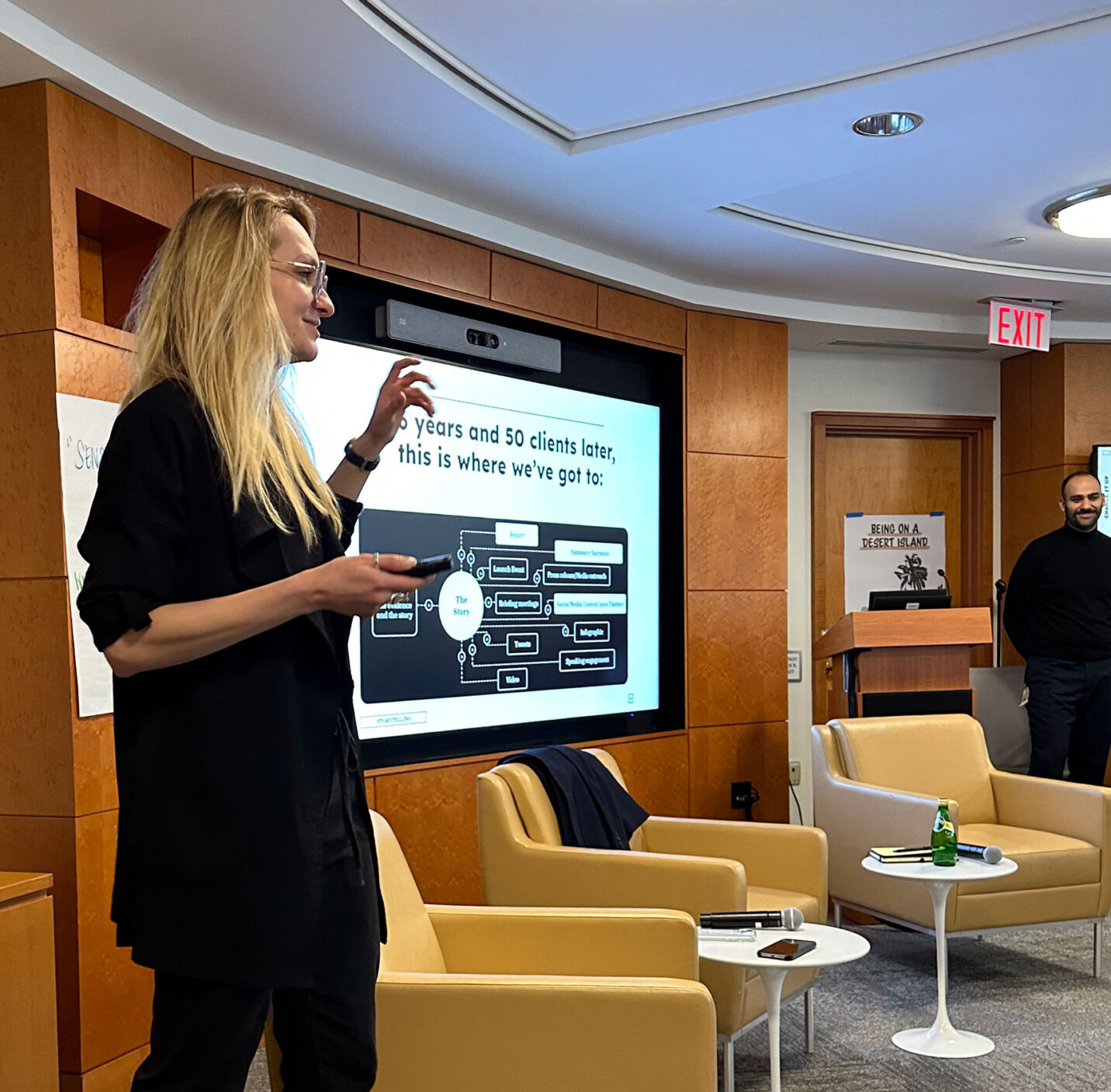
Change how your team think
Each of our three sessions – Persuasion, Story, and Policy – lasts 60-90 minutes, including exercises and discussion. You can read more about each below. They are standalone segments, and combine to form a full day’s training.
We’ll tailor the exercises (where we can) to make them directly relevant to your policy area. The goal being that attendees can come away from the session able to immediately change how they are doing things.
Online: Our fee is £500+VAT per session.
In-person: Our fee is £1,000+VAT per session (in London). We also offer a full day session where we’ll present all three, and endeavour to bring a special guest for a “here’s how the theory pans out in practice”. Normally this is a former political advisor or broadsheet journalist. We can readily appear around the UK as well as Washington D.C. and Brussels for in-person events, elsewhere with coaxing.
The options
book nowPersuasion
Persuasion is at the heart of all policy communications. To do it, you need to understand your audience, know how to frame a topic, and adopt the right persuasion approach.
Story
A dive into how stories and narratives work, why they should be at the heart of your communications model, and how policy experts can leverage them to help create impact.
Policy
Get the inside analysis of our “Getting policy unstuck” series – what the problems in policy are, how others have overcome them, and leave with ideas on how you can adapt your approach to policy change.


